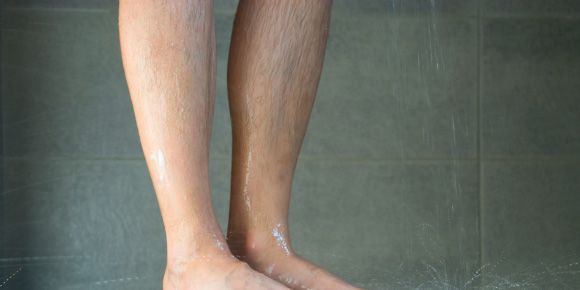We’ve all been there before: you’re in the shower, minding your own business, when all of a sudden you have the urge to pee. For a brief moment, you might think, “No, I can’t! It’s too gross! My feet are touching my pee!” But the thought quickly leaves your mind, and you end up peeing in the shower.
Then the next day, you do it again. And again. And again.
You might think you’re gross for peeing in the shower, but you’re far from alone: according to an (admittedly not that scientific) survey from Angie’s List, nearly 80% of people have admitted to doing so at one point or another.
But is peeing in the shower hygienic — or, for that matter, is it actually OK for you? We asked the experts to weigh in.
It’s (fairly) hygienic.
Let’s start out by talking about what’s actually in your urine. “Urine is basically filtered waste from your bloodstream. It is composed of water, electrolytes, and urea,” says Jamin Brahmbhatt, MD, a urologist at Orlando Health.
Contrary to popular belief, urine is not actually sterile: even if you’re healthy, your urine likely contains low levels of bacteria. But because there’s a constant stream of running water to wash your urine down the drain, “urinating in the shower would not present any significant hygiene risks,” explains Robert Glatter, MD, an assistant professor of emergency medicine at Northwell Health and attending emergency physician at Lenox Hill Hospital.
It’s environmentally friendly.
You know that old saying, “If it’s yellow, let it mellow”? Well, it’s true: older toilets can use between 5 and 7 gallons of water per flush, according to the environmental nonprofit GRACE Communications Foundation’s Water Footprint Calculator. So peeing in the shower saves you a flush, which is actually a decent way to cut down on your household’s water use.
It can help you strengthen your pelvic floor muscles.
,>
Doing regular Kegel exercises, or contracting and releasing your pelvic floor muscles, has been proven to “strengthen muscles and improve blood flow to the area, which is thought to help sexual function,” thus improving the quality of your orgasms and helping you last longer in bed, says Brahmbhatt.
Additionally, he says, doing Kegels in the shower “can help men improve urinary control, especially if they have had prostate surgery or nerve damage that has led to a disconnection between the bladder, prostate, and surrounding muscles.”
Granted, you don’t have to be in the shower to do Kegels. But if you want to get started, try stopping and starting your stream for five minutes, two to three times a day. Then “repeat contracting those muscles 10 times. Slowly contract and release,” Brahmbhatt says.
Some people think it could be good for athlete’s foot.
There’s an old wives’ tale that peeing in the shower is a good way to prevent or treat athlete’s foot, a.k.a. foot fungus. It’s important to note that “there is no published evidence that urinating in the shower may help to prevent foot fungus or is a prescribed therapy to treat foot fungus,” Glatter says.
That said, urea, the nitrogenous compound found in your urine, is also present in some anti-fungal creams. It’s used to soften the skin to allow the active anti-fungal agent to better penetrate the affected area, explains Glatter. “In theory, [this] could help treat or prevent a fungal infection,” he says. But because urea is typically only present in urine in small amounts, you’d have to pee a lot for this to have any effect.
To sum up: if you’re squeamish about bodily functions, then by all means, you should continue to micturate in the toilet like a good boy. But if you’re in the shower and you really have to pee, then it likely won’t do you any harm; in fact, it may even have some small benefits. So pee freely, friend.
Source: Read Full Article
